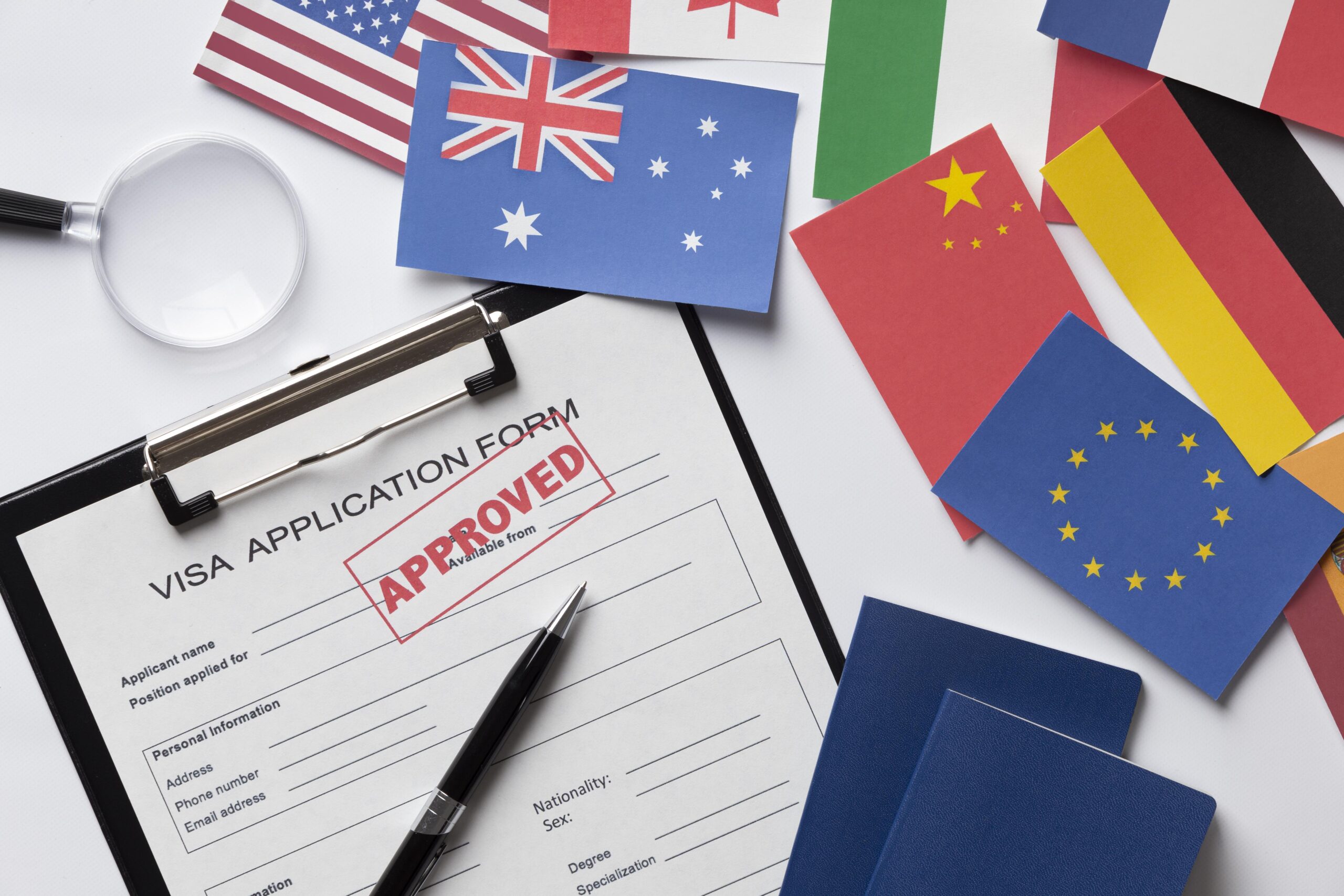The story of how life led me to migrate to Malta.

By Joaquín Pinto Ferrand
CEO & co-founder of Boom Studies
What led me to migrating to Malta? I have had quite a nomadic life. I was born in Lima, Peru, and when I was 8 years old, my parents, along with my whole family, decided to move to Costa Rica to look for a better quality of life, since in my country there was too much insecurity, not enough opportunities and an economy destroyed by years of inflation and internal war.
In Latin America we have no shortage of reasons to migrate, as this scenario is repeated cyclically in various latitudes and it is very difficult to project oneself with so much uncertainty. Many people, of all ages, make difficult decisions to leave behind what they know, their support network, their family, their customs, to venture into new horizons in search of a better quality of life.
So my parents, unbeknownst to them and to me at the time, were already marking me for life with that essence of eternal migrant, which made me migrate to Malta and which I carry as my main mark of identity.
At the age of 17, I decided to move to France to pursue higher education, which I did thanks to an academic scholarship from the French government, where I did my bachelor's and master's degrees. I lived in a small town, Poitiers, for a couple of years and then in Paris. I also did an exchange year in Buenos Aires, Argentina, as it was always my dream to discover more of this amazing country.
So, after having spent many years away from the homeland of my birth in Costa Rica, France and Argentina, I made the decision to return to my country for a while, to reconnect and reconcile with my homeland. As an adult, I realised that the same reasons why my parents left Peru when I was a child were still latent and finally my decision to migrate to Malta became clearer.
How did my interest in migrating to Malta begin?
Beyond the countries I have lived in, I can say that I am an inveterate traveller and have visited several dozen countries, either for work or just out of curiosity. Having lived in Europe for some years, I have also had the opportunity to visit many countries in the old continent, but I had never visited this little island, or even contemplated the idea of migrating to Malta.
The first time I paid attention to Malta was in 2004, when I was studying political science in France and the most important enlargement in the history of the European Union was taking place. Ten new countries were joining the bloc, countries that were "on the periphery" according to my professor of "European Issues". At that time, Eastern European countries that today have made great progress in their development goals, such as the Czech Republic, Slovakia, Hungary, as well as the Baltic countries bordering Russia, Latvia, Lithuania and Estonia, and finally two Mediterranean islands: Malta and Cyprus, joined the bloc.
All of these countries at the time were considered "poor" by European standards. It is clear that EU integration has served its purpose: most of these countries are now thriving economies, with low unemployment rates and vastly improved opportunities for their local populations, as well as for migrants from various parts of the world.
The second time I became interested in Malta was in 2016, when my ex-wife and I were planning our honeymoon destination. To select the destination, we each had a couple of criteria. Mine, very important, was that I had never visited the place. My ex-wife wanted a place with history, I wanted an island. Finally, after eagerly studying the options, we decided on Malta.
First impressions of Malta

Our honeymoon trip consisted of a first stop in Amsterdam for a few days, then a week in Malta and finally a few extra days in Paris. The first and last cities we knew well, but Malta was the cherry on the (wedding) cake.
The Air Malta plane that brought us here landed in daylight, which gave us a good view of the landscape. We landed at the end of September, so the landscape was still quite dry due to the hot summers in which hardly a drop of rain falls.
Looking at the airport infrastructure from the air, as well as the yellowish colours of the landscape, my first impression was that I was in a North African destination. Of course, we sometimes forget that the Mediterranean is shared by southern Europe and North Africa, and that Malta is quite close to Libya and Tunisia.
Being a pleasure trip, my first impressions were clearly permeated by the immense amount of cultural and natural wonders that those who choose to migrate to Malta can appreciate on a daily basis.
We stayed in a beautiful hotel in the centre of Valletta, overlooking the Benedictine dome, and arrived just in time for the Notte Bianca, a cultural event where you can visit museums, shows and iconic buildings on the island for free. For example, we went to see Shakespeare's Macbeth at the Teatru Manoel, a jewel of Maltese baroque, and entered the throne room of the Knights of the Order of Malta like real locals.
Malta has an impressive heritage, including Neolithic temples, Phoenician-founded towns such as Mdina, and imposing Baroque works in Valletta and other towns, including one of Caravaggio's masterpieces, the beheading of St John the Baptist in St John's Co-Cathedral, the finest example of chiaroscuro I have ever seen.
We also sailed along the coasts of Gozo and Comino, with Mark, a Gozitan that fate made me meet at that time and with whom we have already formed a friendship and with whom I go sailing every year since I came to live in Malta. Swimming off the cliffs of Ta Cenc' in 2016 was one of the most breathtaking experiences I have ever had in my life. Whenever I want a happy memory, I close my eyes and there I am, swimming in a sea of improbable colours, in front of giant cliffs and complete, overwhelming solitude.
So it was very easy for us to fall in love with this place and even contemplate the idea of migrating to Malta.
Why did I make the decision to migrate to Malta?

When we returned to Peru, something was itching in our necks, a desire that I have always had, to continue travelling and exploring the world, and my ex-wife decided to take the plunge and enrol in an MBA in Malta. We left everything behind, decided to sell everything we had, a life of many comforts, take our two kittens and set off into the unknown (...).Find out how to migrate with your pets to Malta here)
This is my fourth summer already living in Malta and now I can really consider myself a "resident" in every sense of the word. I know the island very well, and I enjoy it every day.
One of the things that shocks me the most about living here is how many people complain. They complain about the transport, they complain about the prices, they complain about the racism of the Maltese, they complain about the traffic, they complain about the buildings, they complain about the salaries, they complain about the scams, they complain about the noise, in short, they complain sometimes about very specific and personal aspects such as the lack of shopping options they have on the island, among other things.
However, Malta is the country with the highest ratio of immigrants per capita in the whole of the European Union - almost 1 in 4 residents is a foreigner, which would be impossible to achieve if it did not have one or more attractions that attract people's attention.
Now, about the complaints of foreigners, clearly many of them have some basis in fact, and I sincerely believe that whatever latitude you choose to live in, you will always have something to complain about: if you are in Canada, the cold; if you are in Dubai, the heat; if you are in Ireland, the rain, in short, as they say in English. the grass is always greener on the other side of the fence.
Top 10 positive aspects of living in Malta:

In my case, I always try to focus on the positive aspects of the destinations that have welcomed me, so I always remember them all with great affection and I know that they have contributed a lot to who I am today. Living in Malta is no exception. I will list the main ones, but not the only ones below:
1. Security
Clearly what I like most about living in Malta is the security. Coming from a country as insecure as Peru, where I had to think twice about whether to wear a watch to go for a walk in the street or which taxi to call, here it is paradise. I can walk freely through the streets, at whatever time I please, without fear of anything happening to me. Of course, there is no such thing as a zero crime country, but the country really is incredibly safe, including for women.
2. There is no misery
For me, the great success of a society is to eradicate poverty. When you go to San Francisco, one of the cities with the highest concentration of wealth in the world, and you see so many people on the streets begging and without a roof over their heads for the night, you really wonder what all this accumulation of capital is for.
In Malta, everyone has access to shelter and there are virtually no beggars on the streets. While it is true that there are not an exorbitant number of multimillionaires, the vast majority of the population belongs to a middle class that can access basic services without much hassle.
3. There is employment
People who decide to migrate to Malta get jobs very quickly, in a variety of fields. While it's true that the first jobs are almost always the least skilled, it helps you to get a work permit and stay legally on the island, gaining access to all social security services for you and your family, as well as being able to travel within the Schengen area whenever you want. As you build your network and improve your English, your job opportunities obviously increase. Malta is consistently one of the countries with the lowest unemployment rate in Europe.
Read our article on what you need to work in Malta here.
4. It's a great place for entrepreneurship
Migrating to Malta opened the doors for me to start a company and take it forward from scratch. The government is very supportive of entrepreneurship and the startup ecosystem is dynamic. The fact that the island is small allows you to build a good network of contacts quickly and efficiently.
5. She is beautiful
While it is true that some districts are not very glamorous, the truth is that there are architectural gems like Valletta, Mdina or La Citadella in Gozo, which despite the years I have lived here, I never tire of exploring. It also has many seafronts, picturesque villages and a spectacular sea. Honestly, whenever I need to recharge my aesthetic energy, I find it everywhere.
6. Social benefits of living in Malta
Malta has a free healthcare system for taxpayers and their families. I am a user of a programme called "Pharmacy of your choice" for chronic diseases, which allows me to pick up my medicine free of charge at the pharmacy of my choice every two months.
They give me a prescription that lasts for 10 years and nobody asks me for anything more than my name when I go to the pharmacy. In Peru, despite having one of the best health insurances in the country, paid for by the multinational company I worked for, I had to pay around 100 dollars out of pocket every month to have exactly the same thing I have here for free. And that's not even taking into account the cost of the insurance.
7. It is super well connected to Europe and the Middle East.
If you are a travel enthusiast like me, migrating to Malta is a strategic decision considering that the island is particularly well connected to the world.
From here you can fly to the main European capitals and other cities thanks to low cost airlines such as RyanAir which has a base in Malta, but you can also go to destinations such as Qatar and Dubai which connect you to Asia and Africa, as there are Emirates and Qatar Airways flights to Malta. Honestly, I've really benefited from this aspect and you can often find really cheap airline tickets.
8. You don't need to own a car.
I am one of those who have had a car all my life and I really believe that this model affects the environment and generates a lot of stress and additional expenses, however, in the big cities of Latin America it is very difficult to live without a car. Here in Malta the public transport system connects you to the whole island.
While it is not the most punctual in the world, it does have a significant range. You have, for example, ferries to various places, including Gozo, 24 hours a day. There is also a car sharing system with electric vehicles which is really very efficient and which we use as a solution for the company, avoiding having to worry about parking, insurance, permits, etc.
9. It has an impressive international community
People from all over the world live in Malta and it is easy to make friends from all continents and horizons. Since English is one of the official languages, you will always be able to communicate with everyone.
10. The economy is very stable
This from the point of view of a family, an entrepreneur or a worker is a really important aspect when it comes to projecting yourself forward. For example, in the midst of the high inflation we know in the world, Malta is the EU country with the lowest inflation rates in 2022. In addition, its currency is the Euro, which allows you to save in a strong global currency.
In conclusion: I love living in Malta
So, I have given you an overview of how my life has improved tremendously, both in quality and in opportunities. Clearly there are downsides. For example, there is so much construction that if I go out on my terrace I find it difficult to count how many cranes I see on the horizon, but these points are much less when compared to the great benefits and satisfactions that living in Malta has brought me.
By migrating to Malta, I have also become a better businessman, met great friends, been able to travel and marvel at its history and rich heritage. I really feel at home here and I don't regret for a second that I chose this island to make a piece of my life.
I close this post with a big thank you to this island that has brought me so many opportunities and that I will always carry in my heart.
Is it also your dream to migrate to Malta?
Boom Studies We have representatives in several countries and are internationally certified for the quality of our study abroad advisory services. Our guidance and support is free of charge.








